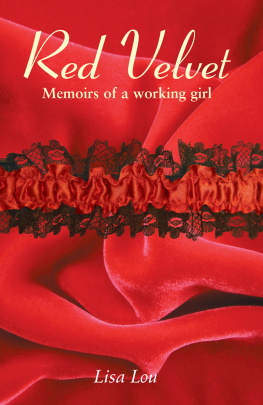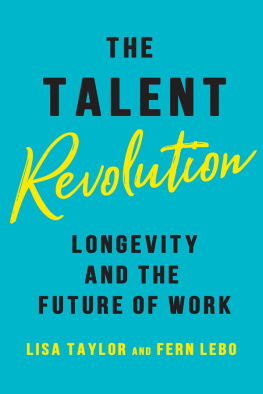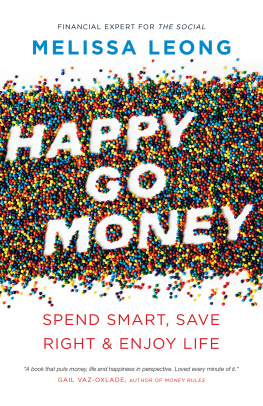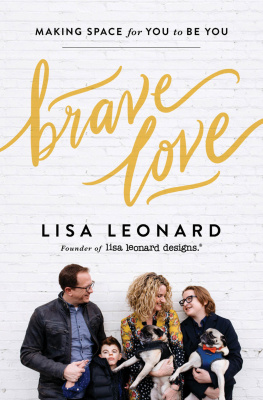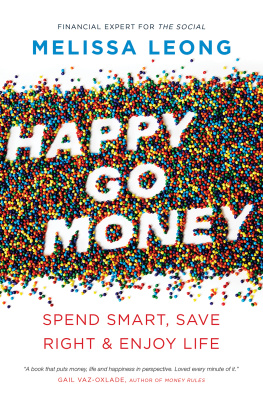Lisa Leong - This Working Life
Here you can read online Lisa Leong - This Working Life full text of the book (entire story) in english for free. Download pdf and epub, get meaning, cover and reviews about this ebook. year: 2021, publisher: Hardie Grant Books, genre: Home and family. Description of the work, (preface) as well as reviews are available. Best literature library LitArk.com created for fans of good reading and offers a wide selection of genres:
Romance novel
Science fiction
Adventure
Detective
Science
History
Home and family
Prose
Art
Politics
Computer
Non-fiction
Religion
Business
Children
Humor
Choose a favorite category and find really read worthwhile books. Enjoy immersion in the world of imagination, feel the emotions of the characters or learn something new for yourself, make an fascinating discovery.
- Book:This Working Life
- Author:
- Publisher:Hardie Grant Books
- Genre:
- Year:2021
- Rating:4 / 5
- Favourites:Add to favourites
- Your mark:
- 80
- 1
- 2
- 3
- 4
- 5
This Working Life: summary, description and annotation
We offer to read an annotation, description, summary or preface (depends on what the author of the book "This Working Life" wrote himself). If you haven't found the necessary information about the book — write in the comments, we will try to find it.
This Working Life — read online for free the complete book (whole text) full work
Below is the text of the book, divided by pages. System saving the place of the last page read, allows you to conveniently read the book "This Working Life" online for free, without having to search again every time where you left off. Put a bookmark, and you can go to the page where you finished reading at any time.
Font size:
Interval:
Bookmark:

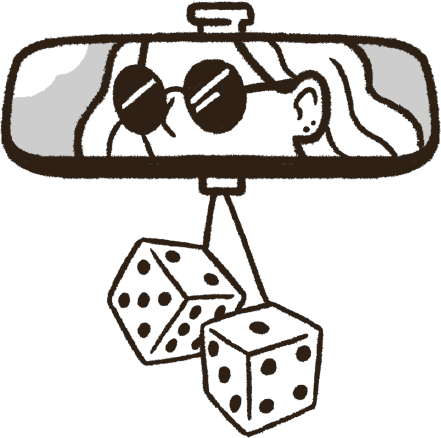
As a young boy, my dad found himself in the frightening grip of a guerilla war. It was the 1950s, and a communist uprising was targeting the destruction of Malayas economic wealth, based largely on its extensive rubber plantations and tin mining. His hometown, Ampang, was a poor rural area with mainly Chinese inhabitants. It was close to the jungle and the surrounding forests were filled with rubber plantations and it was the eye of the storm that became known as the Malayan Emergency.
My dad would listen as communists emerged in the night to execute those who opposed them. He remembers hearing gunfire, and quickly switching off the lights in the familys coffee shop. Everyone squatted down low to avoid stray bullets and stayed very still until the danger passed. Sometimes they stayed like that for the whole night. Sometimes hed see the trucks of British soldiers carrying out the bodies of communists shot in the jungle nearby. They put them on the lawn of the police station opposite the coffee shop. The bodies lay there, tied to poles. It seemed like it always happened just after a thunderstorm. My dad, not even ten years old, vowed to leave the turbulence of Ampang behind and to never live in an environment like that ever again.
By the new decade, he had arrived in Melbourne. Dad adored the beautiful suburban landscape that now surrounded him: peaceful and green. He said this period had a profound impact on his life and is one of the reasons he became an architect and embraced his career so enthusiastically. He believed he was able to influence the environment in which we lived; he could use his imagination to create a happy place for people to enjoy.
Much later in his life, Dad reflected to me that its interesting to see how your future is rooted in your childhood. How your early experiences shape the person you become, and your innermost dreams and desires and aspirations.
I can see his childhood reflected in his work. Dad doesnt like dark rooms thats a reaction to the dim interiors of his home in Ampang and the chaos of the conflict unfolding around him. His architecture and landscape design were influenced by Zen uncluttered and minimalist, bright and open. These calm environments, far removed from violence in the night, speak to the core of him.
Dad was right when he said our futures are rooted in our childhoods. And our childhoods dont have to be as terrifying and traumatic as his was to have a profound impact on our identity and on the career choices we make.
My own childhood was fairly run of the mill. We lived in the same family home, did the same activities on the weekend and went on summer holidays to the same rental accommodation at the beach each year. But looking back on it all these years later, some things start to line up.
We need to know who we are before we can become who we want to be.
Who are you? is a big and complex question. There are answers to be found in our values, our interests, our formative experiences, the highs and lows and in-betweens of our careers to this point. Well get to all of that. But first, we need to go back in time.
Right back.
Back to our upbringing and even back to the experiences our parents had before we were born. There are clues to be found there, clues that can help us understand how we got to where we are now, and get us closer to where (and who) we want to be.
We dont often stop to take stock of how our parents moulded us, but they are generally the number one influence on our career choices.
Looking back, I can see how my parents shaped the way I think about and approach my work. It wasnt that they directed me down a certain road or pressured me to choose a particular career. It was subtler than that.
Dad, for example, gave me this drive to find a profession that suits me at a soul level. He found something that spoke to the core of him, and subconsciously, I have been in search of the same.
The way his career ended also had a profound impact on me.
My dad had a long and distinguished career in architecture, serving as the Chief Design Architect with the Australian Government for thirty years. He is a loyal, passionate and disciplined person. In fact, he was awarded the Australian Public Service Medal in the 1997 Queens Birthday Honours (like an Order of Australia for public servants), the first overseas-born Malaysian Chinese to get such an honour for service to architecture from the Australian Government. He felt proud and lucky given his start in life as a scrawny kid who left Malaysia in the 60s.
He instilled in me a focus on one career one job that you pour yourself into. That was, until that job eroded and then disappeared entirely. When Dad was in his forties, due to the privatisation of some government departments, his architectural and design department was disbanded. It was gutting for a person who was so passionate about public works and design. Even though it was death by a thousand (budget) cuts, the chronic stress of uncertainty and the shock of seeing something disbanded was too much for my dad to bear. He wasnt in the mindset to switch to something new.
In the early 2000s I was in London working for a law firm when my brother came to visit. He arrived at my door with some devastating news: Dad had suffered a stroke.
Thankfully, Dad is still alive. But the stroke paralysed his whole right side. He can no longer use his right hand, which is the hand he draws with. Incredibly, he managed to find that crack where the light gets in: he felt grateful that the stroke happened after he had retired and that he could utilise the incredible advancements in computer technology to relearn how to express his creativity through the digital world.
Watching Dads experience, a few lessons began to crystallise in my subconscious.
We need to be nimble and proactive with our careers. No job, not even a full-time government job, is safe from the vestiges of life. We need to be conscious about the role of work in our lives and find the sunshine in our work, our relationships and in ourselves.
So, how do you start unpacking the way your parents have shaped your life, worldview and choices? (I talk about parents here, but it equally applies to anyone who played a pivotal role in your life during your formative years: a guardian, sibling, or even a role model. Feel free to mentally switch up the word parents to one thats a better fit for your life.)
Karen Bremner, a career coach and counsellor, says it is helpful to think of your career as a journey in a car. Youre in the drivers seat, but there are other people sitting in there with you parents, relatives, friends, teachers, neighbours.
Some of them are cheerleaders; theyll support you and help you get wherever you want to go. Others are gentle influences; they will share their opinions and offer guidance, but ultimately let you make your own choices. Others are backseat drivers, shouting out a better route and trying to grab the wheel.
Everyone in the car wants what is best for you. The problem is, they assume its the same as what is best for them. This is because we tend to think everyone else is just like us, even though we are all very different.
Its important to become aware of who is in the car with you and how much power you have given them, Karen says. At the end of the day, its your career. You have to take the steering wheel, because wherever you end up has to be somewhere you are happy to be. Theres no point driving somewhere just because everybody else loves it. You end up sitting there going, Why am I even here? I dont want to be here!
Next pageFont size:
Interval:
Bookmark:
Similar books «This Working Life»
Look at similar books to This Working Life. We have selected literature similar in name and meaning in the hope of providing readers with more options to find new, interesting, not yet read works.
Discussion, reviews of the book This Working Life and just readers' own opinions. Leave your comments, write what you think about the work, its meaning or the main characters. Specify what exactly you liked and what you didn't like, and why you think so.



